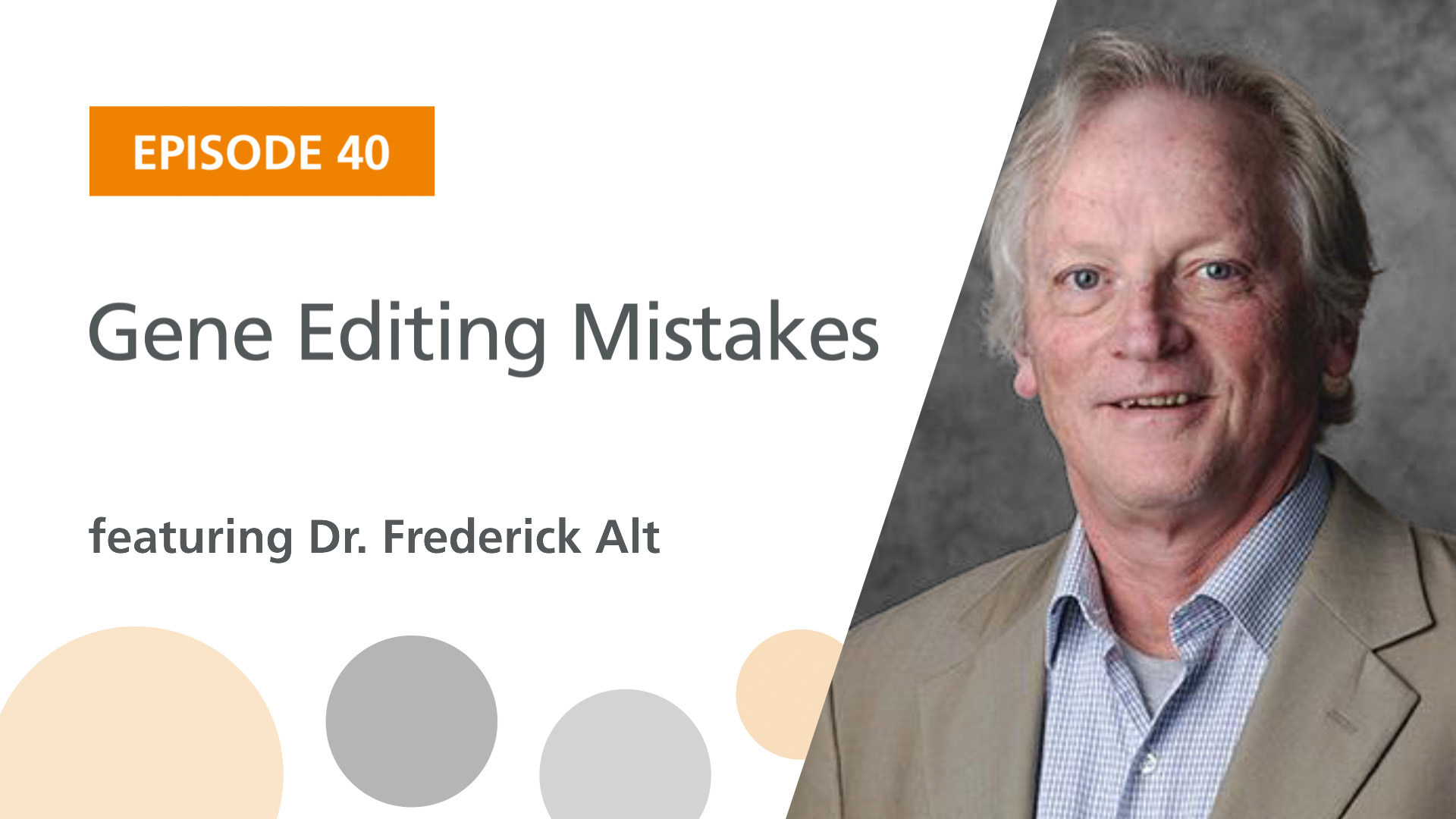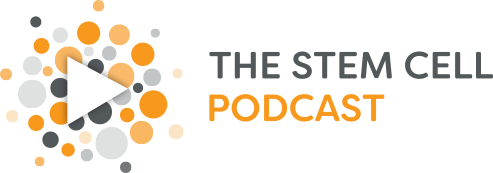
Podcast: Play in new window
Guest:
Our guest, world-renowned geneticist, Dr. Fred Alt from Harvard Medical School talks about his latest paper in Nature Biotechnology where he describes a novel method to detect off target effects of gene editing technology.
Resources and Links
False Memories Implanted into the Brains of Sleeping Mice – By directly manipulating the brains of sleeping mice, researchers tricked the animals into thinking they had received a reward at a specific place when they wake up.
Autism Genes Linked to Higher Intelligence: Treading a Fine Line between Intellectual Disability and Superiority – A comprehensive study conducted shows that genetic variation, which increases risk for autism, is associated with better cognitive ability in non-autistic individuals.
Left or Right? The Brain Knows Before You Move – Scientists at Janelia Research Campus have identified a neural circuit that connects motor planning to movement.
Mutation May Cause Early Loss of Sperm Supply – Brown University biologists have determined how the loss of a gene in male mice results in the premature exhaustion of their fertility.
Sobering Effect of the Love Hormone – Oxytocin, sometimes referred to as the ‘love’ or ‘cuddle’ hormone, prevents alcohol from accessing specific sites in the brain that cause alcohol’s intoxicating effects, sites known as delta-subunit GABA-A receptors.
Tapping into Beer’s Therapeutic Potential – This article describes the study conducted by Chinese researchers on xanthohumol, a compound found in hops that prevented the brain cells from dying and also increased cell production of several antioxidants that counteracted oxidative damage.
Severe Depression Linked with Inflammation in the Brain – This article shows that there was a significant inflammation in the brains of the people with depression, and the inflammation was most severe among the participants with the most severe depression.
Ghrelin Hormone Supplement Increases Sex Drive – New studies have found that a supplement of ghrelin – the “appetite hormone” – increased the sexual activity of mice.
Diabetes in Rats Treated with Engineered Probiotic – Cornell researchers have engineered human lactobacilli, a common gut bacteria, to secrete a protein called Glucagon-like peptide 1 which may help people control diabetes.
Do You Have the ‘Smart Gene’ that also Helps You Live Longer? – Researchers have discovered that a KL-VS variant of the Klotho gene associated with longevity has some added benefits: improved learning and a better memory.
Largest-ever Autism Genome Study Finds Most Siblings Have Different Autism-risk Genes – This article reveals that the disorder’s genetic underpinnings are even more complex than previously thought: Most siblings who have autism spectrum disorder have different autism-linked genes.
Wide House Passage of Embryonic Stem Cell Research Ban in Oklahoma Despite Concerns – This article reports that the House overwhelmingly passed legislation Monday designed to prevent embryonic stem cell research in Oklahoma.
Limited Self-Renewal of Stem Cells in the Brain – This article describes that the self-renewal rate of the stem cells is however limited, explaining why their number drops over the course of a lifetime.
New Test Uses Human Stem Cells to Identify Drug Side Effects – Scientists have developed a test that uses cells from a single donor’s blood to predict whether a new drug will cause a severe reaction in humans.
Lung Cancer Stem Cell Therapy to be Trialed in UK – This article reports that trial will involve 56 patients in UK with metastatic lung cancer who will undergo treatment using genetically modified bone marrow stem cells.
Some Breast Cancers Are Like ‘Stem Cells Gone Bad’ – Testing breast cancer cells for how closely they resemble stem cells could identify the most aggressive cases of the disease.
Stem Cells Reduce MS Brain Damage – This article describes in what could herald a major advance in treating multiple sclerosis, brain damage was significantly reduced in patients getting stem cell transplants, compared to a control group.
In Vivo Therapeutic Potential of Mesenchymal Stromal Cells Depends on the Source and the Isolation Procedure – Findings indicate that the choice of Mesenchymal Stromal Cells (MSC) source and purification protocol is critical in determining the therapeutic potential of these cells and warrant the standardization of an optimal MSC isolation procedure in order to select the best conditions to move forward to more effective clinical experimentation.
Generation of Scaffoldless Hyaline Cartilaginous Tissue from Human iPSCs – Researchers developed a method for generating scaffoldless hyaline cartilage from human induced pluripotent stem cells (hiPSCs).
Enhanced Hematopoietic Stem Cell Function Mediates Immune Regeneration following Sex Steroid Blockade – This article shows that sex steroid ablation induces hematopoietic and lymphoid recovery by functionally enhancing both hematopoietic stem cells self-renewal and propensity for lymphoid differentiation through intrinsic molecular changes.
Scientists Discover Why Some Heart Tissue Turns into Bone – Researchers have used human cells to discover how blood flow in the heart protects against the hardening of valves in cardiovascular disease and identified a potential way to correct this process when it goes wrong by flipping the switch on just a handful of genes.
Stem Cells Lurking in Tumors Can Resist Treatment – Malignant tumors contain stem cells, prompting worries among medical experts that the cells’ transformative powers help cancers escape treatment.
Photo Reference: Courtesy of Dr. Alt

